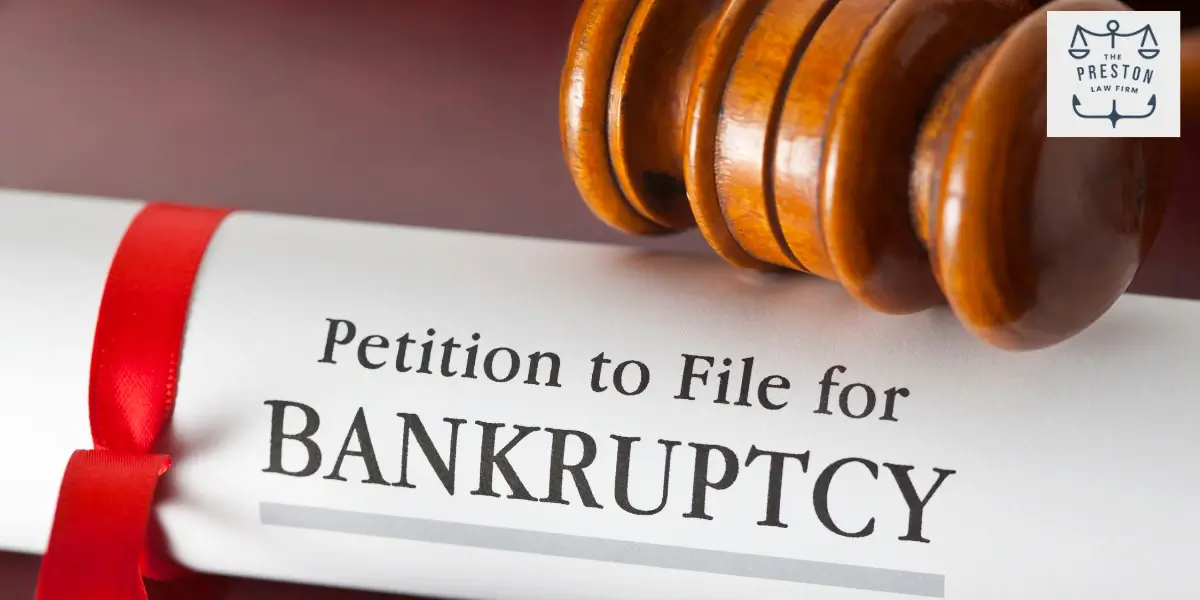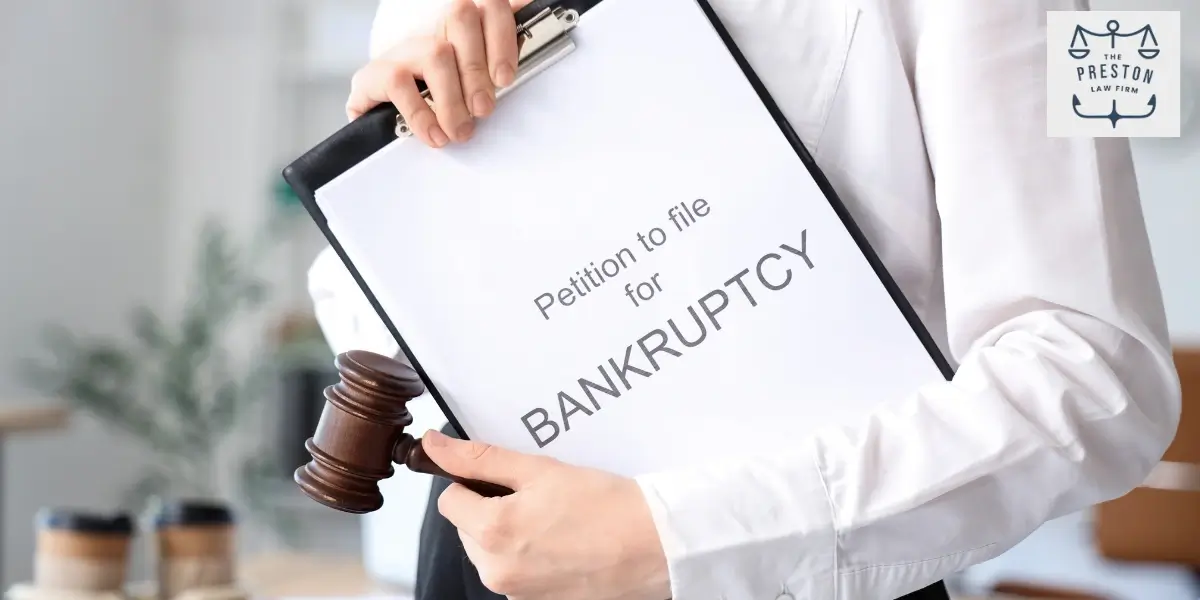|
|
Last
Modified on
May 02, 2025
You may be in a situation that has you wondering, “What happens when you file for bankruptcy in Flagler Beach?” In Florida, filing for bankruptcy offers individuals and families a legal pathway to regain financial stability. Whether you are overwhelmed by debt, struggling with mounting medical bills, or facing foreclosure, bankruptcy may provide relief.
However, understanding the process and all that entails, as well as recent legal changes and Florida’s specific laws, is crucial before filing. Discussing your unique situation with an experienced Flagler Beach bankruptcy lawyer may help you determine if bankruptcy is the right path for you.
Understanding Bankruptcy in Flagler Beach

The residents of Flagler Beach who are seeking bankruptcy relief typically file under federal law. Bankruptcy is governed by federal statutes. The U.S. Bankruptcy Court for the Northern District of Florida oversees the region of Flagler Beach and surrounding areas. Depending on the chapter filed, filing for bankruptcy allows individuals to discharge certain debts or create a repayment plan.
Common Types of Bankruptcy Filings
- Chapter 7: Often referred to as liquidation, this chapter involves the sale of non-exempt assets to pay off creditors. This provides a fresh financial start, as remaining eligible debts are discharged.
- Chapter 13: This filing is known as a reorganization. It allows individuals to keep their property and repay debts over a designated period of time through a court-approved plan.
- Chapter 11: Primarily used by businesses, this chapter involves reorganization to keep the business operational while repaying creditors.
The Filing Process
There are several steps when it comes to filing for bankruptcy. These include:
- Credit Counseling: Before filing, individuals must complete a credit counseling session from an approved agency.
- Filing the Petition: Submit a bankruptcy petition along with schedules detailing assets, liabilities, income, and expenses.
- Automatic Stay: Upon filing, an automatic stay is imposed, halting most collection actions, including foreclosure and wage garnishments.
- 341 Meeting of Creditors: This is a meeting where the debtor answers questions under oath about their financial situation.
- Repayment Plan or Discharge: Depending on the chapter, a repayment plan can be approved by the court, or debts could be discharged.
The Role of the Automatic Stay
Upon filing for bankruptcy, an automatic stay is imposed, providing immediate relief from creditor actions. This stay halts:
- Foreclosures
- Repossessions
- Wage garnishments
- Lawsuits
However, it is important to note that certain obligations, such as child support and alimony, are not affected by the automatic stay.
Recent Legislative Changes Affecting Bankruptcy in Florida
Several legislative updates have impacted bankruptcy proceedings in Florida:
- Increased Vehicle Exemption: As of July 1, 2024, Florida law raised the motor vehicle exemption from $1,000 to $5,000. This means individuals can protect up to $5,000 in equity in their vehicle during bankruptcy, allowing many to retain their primary mode of transportation.
- Adjustment of Dollar Amounts: Effective April 1, 2025, certain dollar amounts in the Bankruptcy Code were adjusted for inflation. Two notable adjustments are for the exemption of personal property, as well as the median family income figures that are used in the means tests.
- Amendments to Federal Bankruptcy Rules: On December 1, 2024, several amendments to the Federal Rules of Bankruptcy Procedure took effect. Notably, individual debtors are required to file a certificate of course completion for the personal financial management course rather than a separate official form.
Florida Bankruptcy Exemptions
Residents of Florida should understand the unique exemptions that can protect assets if they decide to file for bankruptcy. These include:
- Homestead Exemption
- Personal Property Exemption
- Retirement Accounts
- Wages
Considerations Before Filing
Before deciding to file for bankruptcy, it is important to discuss your specific case and options with an experienced attorney. You will want to think about the following:
- Eligibility: You will need to make sure you meet the income and asset requirements for the desired chapter of bankruptcy you plan to file.
- Impact on Credit: Bankruptcy can impact your credit score; however, it may be a necessary step toward financial recovery.
- Asset Protection: You will need to understand which assets are exempt and which may be liquidated.
- Long-Term Financial Planning: It is important to develop a plan to manage finances post-bankruptcy to avoid future financial difficulties.
A trusted law firm like The Preston Law Firm can help explain your options and guide you through each step.

FAQs About Bankruptcy Law in Flagler Beach,FL
What Disqualifies You From Filing for Bankruptcy?
You may be disqualified from filing for bankruptcy if you have filed for bankruptcy within the last 180 days and had your case dismissed due to non-compliance or fraud. Certain debts, like child support, alimony, and student loans, are non-dischargeable in bankruptcy. Individuals with excessive income may not qualify for Chapter 7 bankruptcy.
How Much Does It Cost to File for Bankruptcy in Florida?
The cost to file for bankruptcy in Florida varies depending on the type of bankruptcy. For Chapter 7, filing fees are around $335, and for Chapter 13, it’s about $310. Additional costs may include attorney fees, court fees, or required counseling. For those who can’t afford these fees, there may be resources available to help with these costs, depending on your situation.
How Long Does the Bankruptcy Process Take in Florida?
In Florida, the bankruptcy process typically takes about 3 to 6 months for Chapter 7 bankruptcy and 3 to 5 years for Chapter 13 bankruptcy, depending on the complexity of the case. Factors like asset liquidation, creditor negotiations, and court schedules can influence the timeline. Each case length may vary based on the circumstances surrounding that case.
What Is Protected During Bankruptcy in Florida?
In Florida, bankruptcy law allows individuals to protect certain assets through exemptions. Key protections include the homestead exemption, personal property exemptions, retirement accounts, and wages. The specific exemptions depend on whether the case is filed under Chapter 7 or Chapter 13 bankruptcy.
Contact Us Today
Filing for bankruptcy in Flagler Beach can provide a fresh start for individuals burdened by debt. By understanding the process, recent legal changes, and Florida-specific exemptions, you can make informed decisions about your financial future. Consulting with a qualified Flagler Beach bankruptcy attorney can provide personalized guidance tailored to your unique situation.
For more information or assistance with filing for bankruptcy, contact The Preston Law Firm today.






